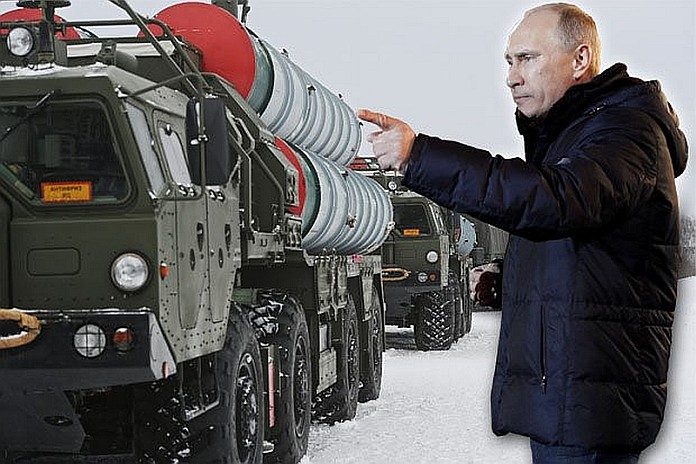Dear Sir:
If you wouldn’t buy a used car from them, God help you if you buy a new one. Even worse, if you want to buy their military equipment because Putin, the armaments salesman, wants to sell the World, military equipment that is not just grossly unreliable, but may be programmed to be used against the very country that buys it.
Russian equipment is well known to have about a seven percent inherent failure rate when it comes to being operated or used. Russians have always been pretty naff at engineering. In the USSR days, the failure of equipment was even greater. But failing equipment like their frequently crashing airliners was strictly treated as a state secret.
The Russian vehicles, Moskvich, Lada, Zaz, and Chiaka Limousine, and several others were all so unreliable that in recent years before European and US sanctions took hold, Russians were buying imports. They imported great numbers of vehicles and exported their rubbish, stacked it high and sold it cheap.
Their nuclear reactors have such a bad record it’s unsafe to live within 5,000 miles of one. Even nuclear military equipment they are building exploded a few weeks ago, killing scientists and military personnel and radiation caused a whole town to be evacuated. Even today, they have withheld the truth about injuries and fatalities, which may run into hundreds or even thousands.
The S 400 has a program linked to a satellite that can enable the Russians to take control of the equipment from a control centre that can be in Russia or anywhere on the planet. It’s certainly the kind of thing Russia would have considered and applied to any equipment sold to any country that may use the equipment against the Russians.
Say, for instance, a country is to be invaded by Russia, and its defence system and anything they bought from the Russians has a computerized system. The Russians can remotely turn the systems off or on and make them inoperable or perhaps have the equipment turn on the users and attack the very country it is supposed to protect. At the flick of a switch, even jet fighters and other aircraft sold by the Russians can be destroyed in the air or on the ground. It’s called the kill switch; the switch kills the equipment and the equipment kills the people.
Country leaders must be crazy if they think for one moment Russia would sell them equipment that can be used against Russia. Even secretly sold atomic weapons can be programmed to explode in storage by a command from Russian control.

The new S 500, I am reliably told, will have a hidden program that can, when activated, turn it from defence into attack equipment and can well destroy key elements and installations of the user country.
It’s a modern version of the Trojan horse. The Trojan horse is a classic tale set during the Trojan War. In the story, the Greeks built a large wooden horse and hid inside it; the Trojans accept the horse as a victory trophy and pull it into the city. When night falls, the Greeks climb out of the horse and open the gates of the city of Troy.
Computer Trojans are a serious threat to unsuspecting users of Russian computerized military equipment. The users unknowingly have these Trojan programs pre-installed, usually controlled through the equipment GPS satellite software, or even internet connection. The control of the equipment can be remotely taken control of by Russian technicians from the other side of the World or from somewhere down the street; the possibilities are incalculable.
Russia, and in particular Putin, offers military equipment at discounted prices, rapid delivery times, and a line of credit that cannot be refused.
But should it be a matter of buyers beware? ‘Caveat emptor’ is a neo-Latin phrase meaning “let the buyer beware.” It is a principle of contract law in many jurisdictions that places the onus on the buyer. Again, buyers of Russian equipment should remember the saying, “If something sounds too good to be true, it probably is.” “If it sounds too good to be true, it usually is” is a catchphrase used to alert the buyer to shady business practices. But in the case of Russian equipment it far worse than that.
The Russians have the known ability to hack into power supplies all over the World; they can turn off the power in Istanbul or New York State, as they did recently in Venezuela to create work for Russian power companies. They hack into computers all over the World and have even taken control of elections worldwide.
But one thing they do not have to hack into is the Russian natural gas supply to the Far East, China, and Europe. They can turn off a valve in the middle of winter and freeze half the world to death overnight. Countries come to rely on Russian gas as their sole energy source, Germany is almost totally reliant. This is an enormous international misjudgment that puts Russia in charge and in front.
The Russians are dangerous people to do any business with, and Putin wants to rule the World. Sooner or later, he may be able to do that by creating a World War where all the Russian military equipment sold abroad, is fighting its owners, and the countries that were silly enough to buy it are overthrown by Russian technology.
Nothing is for nothing, and for sure, what appears a bargain more often than not turns out to be far less than expected. In the case of Putin’s weekly specials, they are for sure the introduction of a poison chalice into unsuspecting countries.
Every deal that Putin currently does puts another nail in the coffin of NATO, The more NATO members that buy Russian equipment, the more NATO members that will end up outside the NATO military coalition, because you cannot serve both masters.
Would you really buy a used car from a man like Putin? How about a Trojan Horse?
Jolly Green





